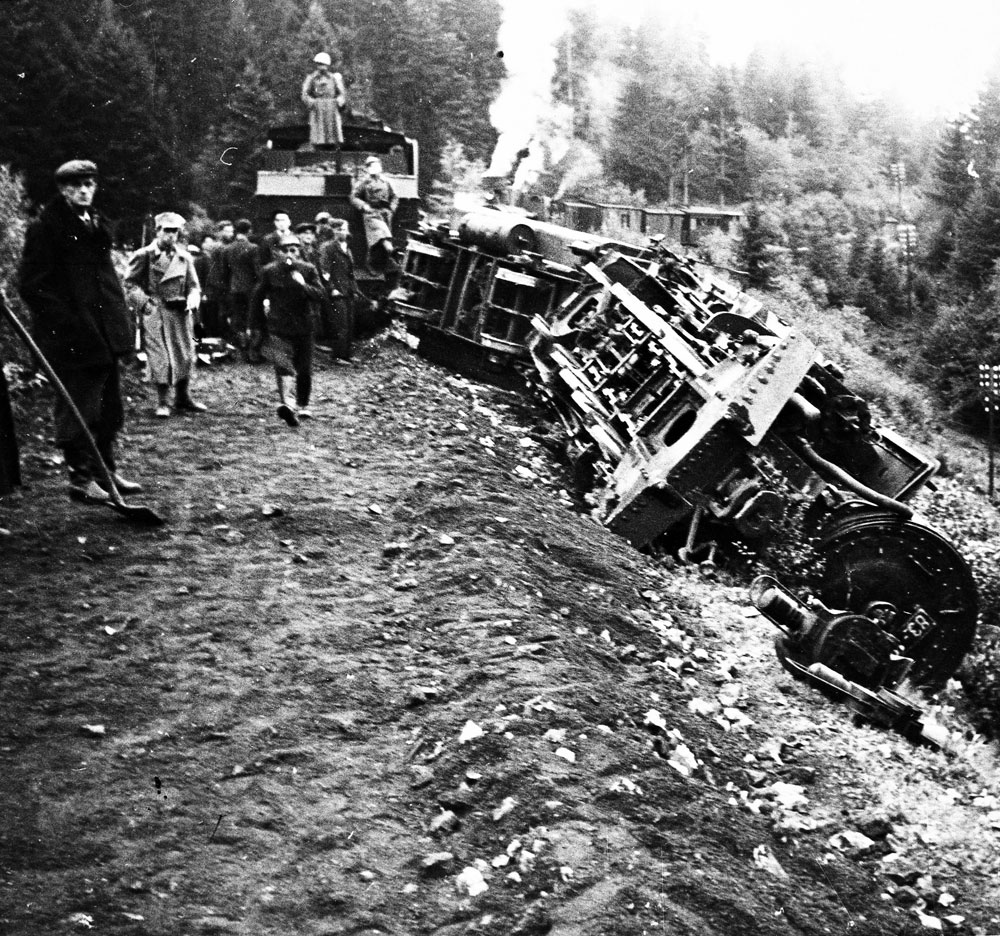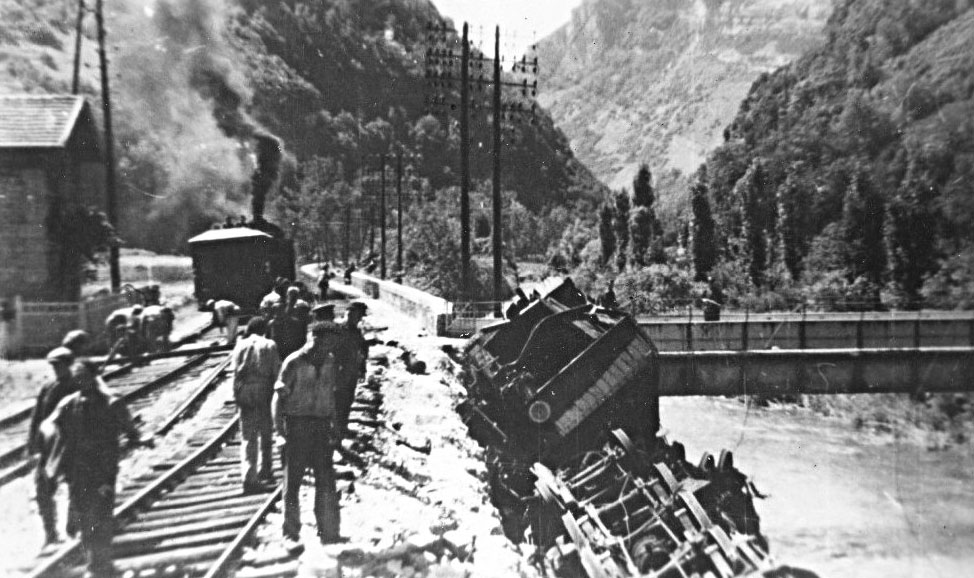Attacking railways
Railways and trains were of capital importance for Nazi Germany in occupied countries, for transporting soldiers, military equipment, food and other supplies. This made them a privilegd target for resistance movements all over Europe. In Croatia, Partisans resistance started in June 1941 with the sabotage of the railway Zagreb – Sisak. The Partisan campaign against railways developed constantly: For the period of summer and fall 1942, the Germans recorded 465 acts of sabotage within the Independent State of Croatia. These actions took different forms: destroying tracks over a stretch of several km, trafficking one spot in order to cause a train to derail, sometimes also direct attacks of trains and of train stations.
Besides disturbing the German war effort, these attacks often also allowed the Partisans to get equipment and food. In July 1942, for example, a Partisan detachment took control over the little Bradina train station on the important Sarajevo-Mostar line. There were stationed six locomotives and a goods train with 33 wagons. The goods included cherries, apricots and honey, which the commanders decided to dispatch to the Partisan hospitals, and a part to the fighters. The detachment then blew up one locomotive in a tunnel, sent the other locomotives and the wagons downhill, and destroyed the train station and the tracks both on the Sarajevo and Konjic side.
Also in France, sabotage actions against railways became increasingly important, passing in summer 1943 from 30 to 100 per month, most of the time derailments. A peak was reached in June 1944, when hundreds actions were organized in relation with the Allied landing in the Normandy, in order to hinder German troops in their circulation. Resistance groups were also helped by railwaymen, and some of them created in summer 1943 their own underground movement, organizing sabotage and providing information to other resistance groups. It was called Résistance Fer („fer“ means iron and is part of the French word for railway: „chemin de fer“)
Railway sabotage and attacks became a popular motif in films after the war. In France, one of the first movies about the resistance was “La bataille du rail“ (The battle of the rails), inspired by the actions of Résistance Fer. Also in Valter brani Sarajevo, the main action which the Partisans are planning is the destruction of a train transporting petrol for the German army.
Nicolas Moll



